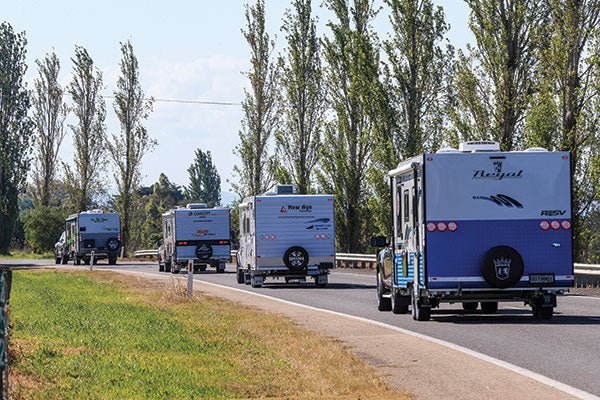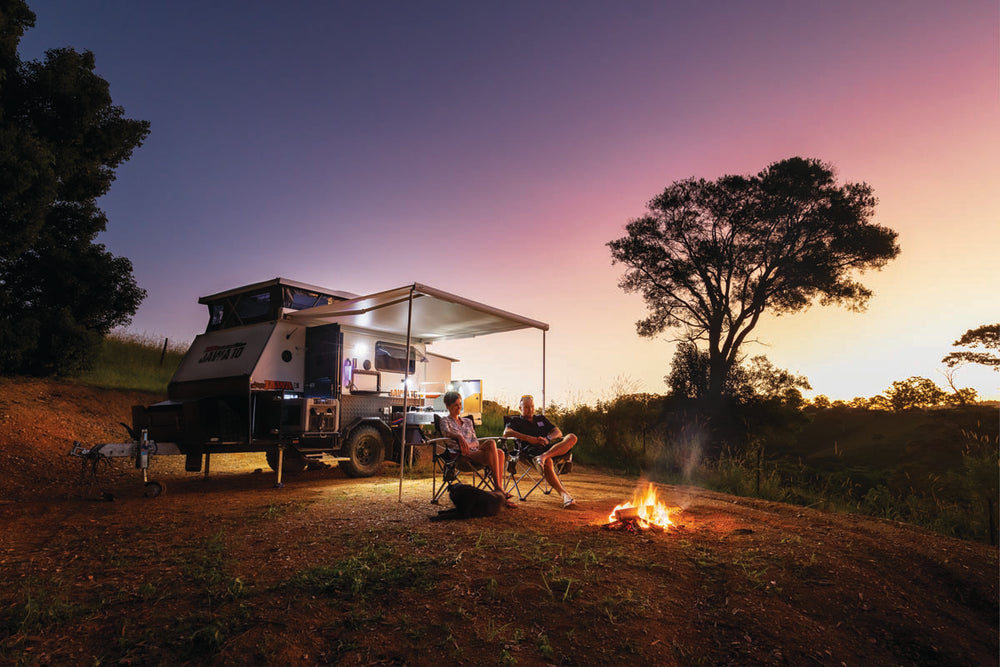RV industry future

There’s no denying it; the RV industry is booming.
Latest research by the Caravan Industry Association of Australia (CIAA) shows unprecedented growth, with 7.1 million Australians going caravanning or camping in the past two years.
CONSOLIDATION TO CUT COST
Richard Barwick, chief executive of Australia’s largest RV club, the Campervan & Motorhome Club of Australia (CMCA) which has some 70,000 members, says the reality is, the market will have to consolidate.
“Even larger companies are going to have to move to consolidation and look at their business models to address the future. There is a saturation in the market of RVs and something will have to give as there won’t be enough demand for all that stock.”
Caravan Industry Association of Australia chief executive Stuart Lamont agrees.
“While making the industry very competitive and responsive to consumer trends there are simply too many individual manufacturers for the volume being produced.
“While in international markets we have seen some aggregation and absorption of individual manufacturers which has resulted in even more locally manufactured units being produced .. this has not yet occurred in Australia.”
Ben Binns, chief executive of Avida, which has been manufacturing RVs in Australia since 1965, says we should have our eye on the international model.
“If you look at the European market, 95 per cent is owned by seven companies and they are doing hundreds of thousands of vehicles. I think the consolidation model will be the future. By doing that, you create a more competitive marketplace which allows higher volume for people and drives the price down.”
New Age Caravans director Gabby Montagnese says her company is already looking at tapping into new markets like motorhomes.
“It’s something you can’t ignore. I think it’ll bring more consistency in the product they [the consumer] are getting, and it’ll bring costs down, streamline process and give best practice in manufacturing.”
National manager of Mars Campers, Celso Prado, says those who ignore the warnings won’t survive.
“One of the arts of surviving in business is to see the writing on the wall before anyone else does, unfortunately many manufacturers may not see it until it’s too late and we feel for them, however the consumer will be the biggest winner in the end as only the fittest and better ran teams will survive.”
But Carl Bizon, chief executive of Jayco Australia, which holds half the market, producing 11,000 units a year in a market of 21,500, says there’s no point of consolidation for consolidation sake.
“You have to understand what drives it and at the moment there’s no pressure for it. The growth of new companies and rebirth says you can comfortably exist as a small player so consolidation happens when there’s a threat they are trying to ward off and I’m not sure that exists.”
AUSTRALIAN-MADE BUT IMPORT FROM OVERSEAS
With the car manufacturing industry in this country all but moving offshore from next year, it does pose the question of whether it’s not a more sustainable model.
Mars’ Celso Prado, which designs in Australia and imports from China, says there’s always a feeling that imports are bad and that they take away employment from Australia, when it’s simply not the case.
“We also employ here so when political discussion is about jobs, its bigotry .. because the money we put back in the [Australian] economy is significant.
“In my opinion the ‘imports are bad’ mentality prevails among those specific businesses experiencing a bad economy no matter how good the current economic climate is. Businesses who may be failing to innovate or are simply hanging on their brand heritage may still have associations or groups where they still have great influence and manage to propagate the doom and gloom message of ‘lets fight the imports’ .. instead of helping members sharp their business skills to take advantage of the changing landscape.”
Prado predicts more manufacturers will have no choice but to move offshore.
“There will be people who say they won’t ever move out of Australia, but they’ll end up going the same way as Toyota because of very high costs. Why not expand and conquer new countries instead of being squeezed out of yours?”
Don’t, however, question the future of Australian manufacturing to third generation Australian manufacturer Justin Montesalvo who runs Patriot Campers.
He’s as true-blue as they come and says there’s absolutely no question in his mind about the future of Australian manufacturing.
“Australian manufacturing has always been the main priority for my company, I hold it pretty close to my heart and can see my kids going the same way.
“So if we go down that path or building to price point with imported product, the quality isn’t here and that’s not an audience we’re targeting.
“The market has been educated and is more savvy now .. because of the flooding of imported product .. and I don’t understand product selling and manufacturing just to make a dollar. I want to leave a legacy and for my two boys and daughter this is what I want to leave for them and we’ll always be advocates for Australian-made.”
Peter Mannfolk, managing director of leading manufacturer of RV running gear, AL-KO Australia, agrees there will always be a strong place for an Australian-made product.
“They are unique because of the offroad focus which you don’t see in European manufactured caravans and there will always be demand by the consumer to buy Australian-made because of customisation, while the offshore manufactured option is more suited to standard product.”
Barwick says he would love to see as much Australian manufacturing as possible but says the manufacturing sector has to listen to the customer.
“This industry has had a chequered past because of compliance, and manufacturers have to ensure product is fully compliant because imports do cause problems with compliance.”
The full feature appeared in Caravan World #566. Subscribe today for the latest caravan reviews and news every month!







